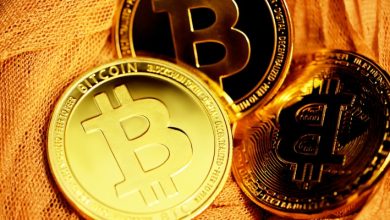The Role of Tokens in Decentralized Finance (DeFi)

- Understanding the Basics of Tokens in DeFi
- The Evolution of Tokens in the DeFi Ecosystem
- Tokenization: Empowering Financial Inclusion in DeFi
- Exploring the Utility of Tokens in Decentralized Finance
- The Role of Governance Tokens in DeFi Protocols
- Token Standards: A Framework for Interoperability in DeFi
Understanding the Basics of Tokens in DeFi
Understanding the basics of tokens in decentralized finance (DeFi) is crucial for anyone looking to navigate this rapidly growing sector of the cryptocurrency market. Tokens play a central role in DeFi platforms, serving as the digital assets that power these decentralized ecosystems. These tokens are typically built on blockchain technology, allowing for secure and transparent transactions without the need for intermediaries.
One of the key features of DeFi tokens is their programmability, which enables developers to create smart contracts that govern how these tokens can be used. This programmability opens up a wide range of possibilities for financial applications, such as lending, borrowing, trading, and more. By leveraging DeFi tokens, users can access a variety of financial services without relying on traditional banks or financial institutions.
Another important aspect of DeFi tokens is their liquidity, which refers to how easily they can be bought or sold on the open market. Liquidity is essential for ensuring that users can quickly and efficiently trade their tokens without encountering significant price slippage. In the world of DeFi, liquidity is often provided by automated market makers, which use algorithms to set prices based on supply and demand.
The Evolution of Tokens in the DeFi Ecosystem
In the rapidly evolving landscape of decentralized finance (DeFi), tokens play a crucial role in shaping the ecosystem. The evolution of tokens in DeFi has been a fascinating journey, with various types of tokens emerging to fulfill different functions within the decentralized financial system.
One of the most common types of tokens in the DeFi space is utility tokens. These tokens are designed to provide access to a specific product or service within a decentralized platform. They can be used for voting rights, governance, or as a means of payment for transaction fees. Utility tokens have become an integral part of many DeFi projects, allowing users to participate in the platform’s activities and contribute to its development.
Another important category of tokens in DeFi is governance tokens. These tokens give holders the power to participate in decision-making processes within a decentralized protocol. By holding governance tokens, users can vote on proposed changes, upgrades, or other important decisions that affect the future of the platform. Governance tokens have gained significant popularity in the DeFi space, as they empower the community to have a direct impact on the direction of the project.
Additionally, we have seen the rise of stablecoins in the DeFi ecosystem. These tokens are pegged to a stable asset, such as the US dollar, to minimize price volatility. Stablecoins are essential for DeFi users looking to hedge against market fluctuations while still benefiting from the advantages of decentralized finance. They provide a reliable medium of exchange and store of value within the DeFi ecosystem, enabling users to transact seamlessly without worrying about price fluctuations.
Overall, the evolution of tokens in the DeFi ecosystem has been driven by the need for diverse functionalities and use cases. From utility tokens to governance tokens to stablecoins, each type of token serves a unique purpose in the decentralized financial system. As DeFi continues to grow and innovate, we can expect to see even more innovative token models emerge, further enhancing the efficiency and accessibility of decentralized finance for users around the world.
Tokenization: Empowering Financial Inclusion in DeFi
Tokenization plays a crucial role in promoting financial inclusion within the realm of decentralized finance (DeFi). By converting traditional assets such as real estate, art, or even commodities into digital tokens, this process enables broader access to investment opportunities previously inaccessible to many individuals.
Empowering individuals to participate in DeFi through tokenization opens up a world of possibilities, allowing for fractional ownership and easier transfer of assets. This democratization of finance breaks down barriers and fosters a more inclusive financial ecosystem.
Moreover, tokenization enhances liquidity and reduces transaction costs, making it easier for individuals to buy, sell, and trade assets seamlessly. This increased liquidity fosters a more efficient marketplace, benefiting both investors and project developers.
Exploring the Utility of Tokens in Decentralized Finance
Exploring the utility of tokens in decentralized finance (DeFi) is crucial in understanding the role they play in this innovative financial ecosystem. Tokens serve various functions within DeFi platforms, offering benefits such as governance rights, liquidity provision, and incentivizing user participation.
One of the primary utilities of tokens in DeFi is their role in governance. Token holders often have voting rights that allow them to participate in decision-making processes regarding platform upgrades, changes in protocol parameters, and other critical decisions. This democratic approach to governance empowers users and fosters a sense of community ownership.
Furthermore, tokens are essential for providing liquidity in decentralized exchanges (DEXs) and other DeFi platforms. Users can stake their tokens in liquidity pools to facilitate trading and earn rewards in the form of transaction fees or additional tokens. This mechanism helps ensure efficient trading and enhances the overall user experience.
In addition to governance and liquidity provision, tokens are also used to incentivize user participation in various DeFi protocols. By offering rewards in the form of tokens, platforms can attract users to perform specific actions such as providing liquidity, borrowing assets, or participating in yield farming. These incentives help drive user engagement and contribute to the growth of the DeFi ecosystem.
Overall, the utility of tokens in decentralized finance goes beyond simple speculation or investment opportunities. Tokens play a vital role in governing platforms, providing liquidity, and incentivizing user activity, thereby contributing to the success and sustainability of the DeFi space.
The Role of Governance Tokens in DeFi Protocols
Governance tokens play a crucial role in decentralized finance (DeFi) protocols. These tokens give holders the ability to participate in the decision-making process for the protocol. By holding governance tokens, users can vote on proposed changes, upgrades, or additions to the protocol. This decentralized governance model allows for a more democratic and community-driven approach to managing the protocol.
Furthermore, governance tokens also provide incentives for users to actively participate in the ecosystem. By holding these tokens, users are motivated to stay engaged with the protocol, as their voting power is directly tied to their token holdings. This helps ensure that decisions are made in the best interest of the community as a whole.
In addition, governance tokens can also be used to stake in liquidity pools or provide collateral for borrowing and lending activities within the DeFi protocol. This allows users to earn rewards or fees in return for their participation, further incentivizing active involvement in the ecosystem.
Overall, governance tokens are a key component of DeFi protocols, enabling community-driven decision-making, incentivizing user participation, and providing additional utility within the ecosystem. By holding governance tokens, users can actively contribute to the growth and development of the protocol while also benefiting from the rewards and incentives offered.
Token Standards: A Framework for Interoperability in DeFi
In the decentralized finance (DeFi) ecosystem, token standards play a crucial role in ensuring interoperability among different platforms and applications. These standards provide a framework for tokens to be created, issued, and exchanged seamlessly across various DeFi protocols.
One of the most widely adopted token standards in DeFi is the ERC-20 standard, which defines a set of rules and functions that a token smart contract must implement to be compatible with the Ethereum network. By adhering to the ERC-20 standard, tokens can be easily traded on decentralized exchanges, used as collateral in lending protocols, and integrated into other DeFi applications.
Another important token standard is the ERC-721 standard, which is used for creating unique, non-fungible tokens (NFTs). These tokens represent ownership of digital or physical assets, such as art, collectibles, or real estate, and can be traded or transferred on the blockchain like any other token. The ERC-721 standard has opened up new possibilities for tokenizing assets and creating novel financial instruments in the DeFi space.
In addition to these standards, there are other emerging token standards, such as ERC-1155, which allow for the creation of both fungible and non-fungible tokens within the same smart contract. This flexibility enables developers to optimize gas costs and improve scalability by bundling multiple token types into a single contract.
Overall, token standards are essential for promoting interoperability and innovation in the DeFi ecosystem. By establishing common rules and protocols for token creation and exchange, these standards enable developers to build on each other’s work, create new financial products, and ultimately drive the growth of decentralized finance.



